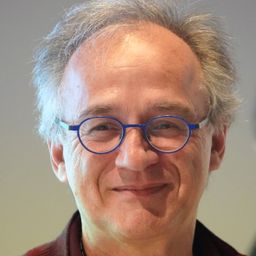
Mikaela Gallinger
Sessions in which Mikaela Gallinger attends
lunes 29 agosto, 2022
Industrialization processes have been global from their very beginning. However, their interpretation still tends to be limited to specific locations or regions, and to specific time periods. Regularly, for example, it is stated that the industrial revolution started in Europe, from where it spread to the world, supposedly bringing technological and social progress to „less developed“ countries. Earlier periods of technology and knowledge transfer processes, that were already in place in t...
This session presents case studies and policy reviews that contribute to ongoing debate and international dialogue on the role of planning systems and conservation practices in addressing the challenges of citizen engagement—conserving local interests, place attachments alongside physical remnants of industrial heritage. Over the past half century, we have witnessed the development and changing focuses of urban planning and conservation discourses addressing industrial heritage. Relevant p...
This session presents case studies and policy reviews that contribute to ongoing debate and international dialogue on the role of planning systems and conservation practices in addressing the challenges of citizen engagement—conserving local interests, place attachments alongside physical remnants of industrial heritage. Over the past half century, we have witnessed the development and changing focuses of urban planning and conservation discourses addressing industrial heritage. Relevant p...
Industrial heritage and photography have a close relationship. Photography is a source for industrial archaeology. It sheds light on the links between people, their tools, their machines and their workplaces. Once the industrial activity is over, photography is also a tool for documenting and studying the sites. But far beyond that, captured by artists capable of transcending common representations, conferring on industrial remains the ugliness of an era that was thought to be over, photog...
Si la vallée du canal de Lachine a été le berceau de l’industrialisation canadienne, la géographie industrielle métropolitaine ne s’y est pas confinée, peu s’en faut, Outre les grandes concentrations d’entreprises des quartiers centraux, elle est constituée des réseaux infrastructuraux, d’une douzaine de centrales hydroélectriques et des ensembles manufacturiers disséminés dans une quinzaine de petites villes aujourd’hui intégrées dans l’aire métropolitaine. La conférence proposera un surv...
Join us for an informal continuation of the discussion started with the public lecture.A drink will be offered to the first fifteen people.
martes 30 agosto, 2022
This session will allow us to explore, through nine international case studies, the different strategies for the development of industrial heritage as well as their impacts on communities and their territory. The analysis of museums, cultural spaces, itineraries and urban developments will be an opportunity to highlight the questions of identity, meaning, relevance and impact that animate all the actors of this heritage in transformation.
It is widely accepted that understanding a historic place is a critical first step to guide subsequent management and conservation. Industrial sites present a number of challenges as understanding their form, function, design, boundaries, and conservation often requires a high degree of technical expertise and experience. In Canada, gaining this expertise and information sharing is hampered by a limited number of institutions offering training in industrial archaeology and the lack of a na...
It is widely accepted that understanding a historic place is a critical first step to guide subsequent management and conservation. Industrial sites present a number of challenges as understanding their form, function, design, boundaries, and conservation often requires a high degree of technical expertise and experience. In Canada, gaining this expertise and information sharing is hampered by a limited number of institutions offering training in industrial archaeology and the lack of a na...
As a "continent” country, in which industrialization began as early as the 19th century, Canada has seen through deindustrialization and urban redevelopment, parts of this heritage have been either altered or destroyed. Yet, Canada still possesses a very significant industrial heritage. With Canada being a confederation, approaches to the protection and the safeguard of its industrial heritage differs throughout the provinces and territories of the country. The same is true of i...
Past efforts to conserve and interpret industrial heritage have rarely acknowledged the role of industry causing damaging environmental change. But todays obvious worldwide climate change inevitably impacts our thinking about conservation. This is why we propose a Roundtable session to encourage people to take a fresh look at environmental impacts of industrial heritage.Already in the 1970s narratives of industrial history as a succession of triumphs began to be qu...
This session will allow us to explore, through nine international case studies, the different strategies for the development of industrial heritage as well as their impacts on communities and their territory. The analysis of museums, cultural spaces, itineraries and urban developments will be an opportunity to highlight the questions of identity, meaning, relevance and impact that animate all the actors of this heritage in transformation.
Efforts to preserve industrial heritage occurs in a socio-economic and political context. But what is being preserved and for whom? And, relatedly, what is the relationship between industrial heritage sites and the deindustrialized working-class communities that often adjoin them? The keynote will consider the ways that the preservation of Montreal’s Lachine Canal, Canada’s premier industrial heritage site, has enabled gentrification processes that have forc...
miércoles 31 agosto, 2022
North America has a large number of historic canals, which have been closed to commercial shipping due in part to the evolution of transportation (higher tonnage ships, trains, trucks, etc.). While some historic canals have been filled in, forgotten or disused, many have survived, in whole or in part, becoming attractive heritage sites. For some of these, the challenge is to reconcile the preservation of historic components with the need to keep their waterway accessible to navigation. Thi...
North America has a large number of historic canals, which have been closed to commercial shipping due in part to the evolution of transportation (higher tonnage ships, trains, trucks, etc.). While some historic canals have been filled in, forgotten or disused, many have survived, in whole or in part, becoming attractive heritage sites. For some of these, the challenge is to reconcile the preservation of historic components with the need to keep their waterway accessible to navigation. Thi...
This session addresses a perpetuating disjunction between conceptualisation of heritage and heritage making in heritage studies vis-a-vis heritage management and conservation of industrial heritage sites. There is an inevitable impact of this disjunction on advancing policy in people- and place-centred approaches to heritage futures. This session aims to explore ways in which tangible and intangible traces of the past can be utilised creatively in shaping desirable places to dwell and work...
In this lecture, I would like to talk about deindustrialised communities, heritage and memory in the context of right-wing populism. Drawing on studies of memory and heritage, I argue that right-wing populists have cornered the market on talking about the past of deindustrialised communities. They have successfully misrepresented this rich and complex history to fuel rage, resentment, fear and reactionary nostalgia. Indeed, ‘the past’, and in particular the industr...
jueves 1 septiembre, 2022
From its construction to its restoration, immerse yourself in the now and then of this key Canadian industrial heritage site. A country’s central maritime route, a major inland port, the Canadian Lowell (using hydraulic power), the cradle of industrialization, Smokey Valley (using steam), a manufacturing hotspot, the Lachine Canal is all of this and more. For it is also a national historic site, for which
The proposed session will examine the unfolding relationship between industrial heritage and those left behind in adjoining deindustrialized working-class areas. The four papers seek to understand the socio-economic and political impact of recognizing the industrial past in the present. Two guiding questions will be asked. Can industrial heritage support those ‘left behind’ in deindustrialized areas where nothing, or very little, has filled the economic or cultural vacuum? Has industrial h...
The Bata Company, which evolved from a small workshop in Zlin in the former Austro-Hungarian Empire, today being part of the Czech Republic, at the end of the 19th century, became one of the best-known largest shoe producers in the world in the second half of the twentieth century. The company was not characterised by the unique organisational structure and implementation of disruptive innovations only. Also, it is connected with significant investments in the social life of its employees....
Transportation and distribution have served as the secondary component to significant industrial expansion after energy and power transformed modes of production. Expanding production permitted increases in output demanding a means to both bring new materials into industrialized regions and export products to markets. Canals and shipping provided the earliest forms of bulk transportation but were limited by capacity, geography, and envir...
Transportation and distribution have served as the secondary component to significant industrial expansion after energy and power transformed modes of production. Expanding production permitted increases in output demanding a means to both bring new materials into industrialized regions and export products to markets. Canals and shipping provided the earliest forms of bulk transportation but were limited by capacity, geography, and envir...
The Bata Company, which evolved from a small workshop in Zlin in the former Austro-Hungarian Empire, today being part of the Czech Republic, at the end of the 19th century, became one of the best-known largest shoe producers in the world in the second half of the twentieth century. The company was not characterised by the unique organisational structure and implementation of disruptive innovations only. Also, it is connected with significant investments in the social life of its employees....
The proposed session will examine the unfolding relationship between industrial heritage and those left behind in adjoining deindustrialized working-class areas. The four papers seek to understand the socio-economic and political impact of recognizing the industrial past in the present. Two guiding questions will be asked. Can industrial heritage support those ‘left behind’ in deindustrialized areas where nothing, or very little, has filled the economic or cultural vacuum? Has industrial h...
Si le blé occupe une place mythique dans l’histoire de l’industrie au Canada, le pain et la boulangerie n’ont pas suscité le même intérêt. Témoin de l’époque artisanale, puis de l’industrialisation, le secteur du pain connaît aujourd’hui un retour à des modes de production préindustriels, dans la foulée de la « glocalisation » qui caractérise plusieurs produits alimentaires. Les études consacrées à la fabrication du pain se sont surtout intéressées au monde rural et à l’époque préindustrie...
This lecture will argue that the landscapes of industrial heritage that can be found in different parts of the world are directly related to the place-specific trajectories of deindustrialization. In other words: the different ways in which deindustrialization impacts on local communities has a direct bearing on the emergence of forms of industrial heritage. I will differentialte between deindustrialization paths and related industrial heritage regimes in a) Anglo-...
viernes 2 septiembre, 2022
At every World Congress, the international TICCIH community celebrates a General Assembly of its members. The event is open for any registered member of TICCIH, as well as the wider public. According to the current TICCIH Statutes (https://ticcih.org/about/statutes/), however, only Na...
In the refusal of people in communities abandoned by industrial capital to abandon their own places, we can read an implicit critique of the mobility and unaccountability of capital, raised by those who were once inside (however tenuously or uncomfortably) and now find themselves marginalized, “left behind.” The desire to catch up again, whether through attracting new investment or transvaluing abandoned sites as tourist attractions, makes this an essentially conservative critique that is ...





